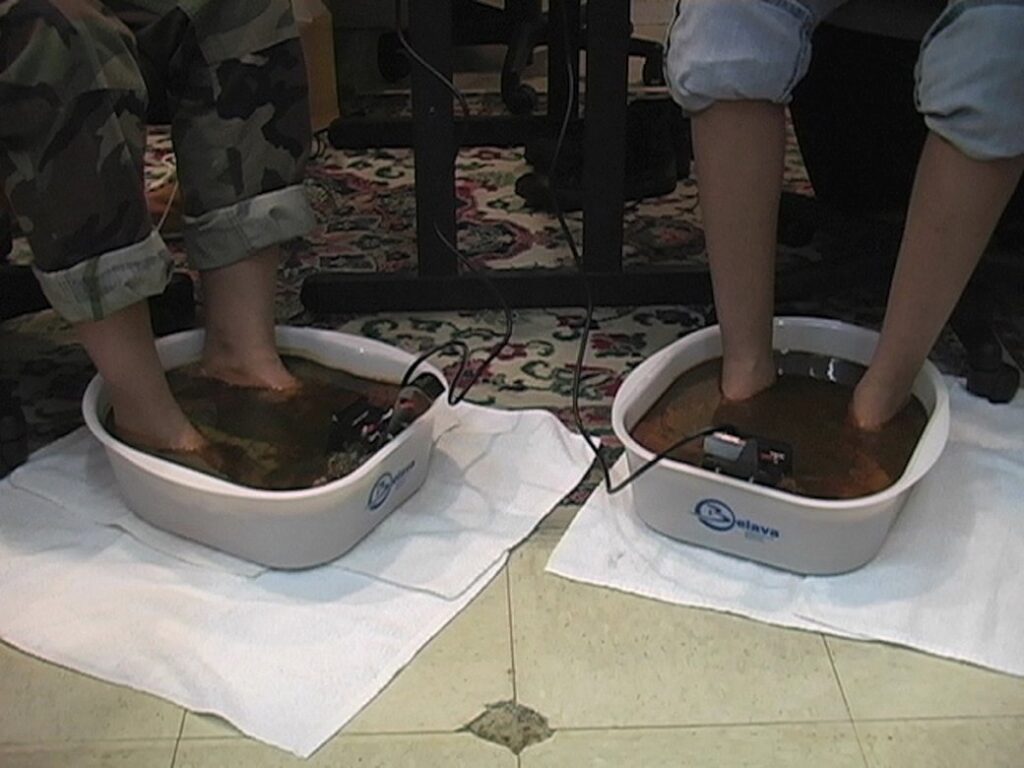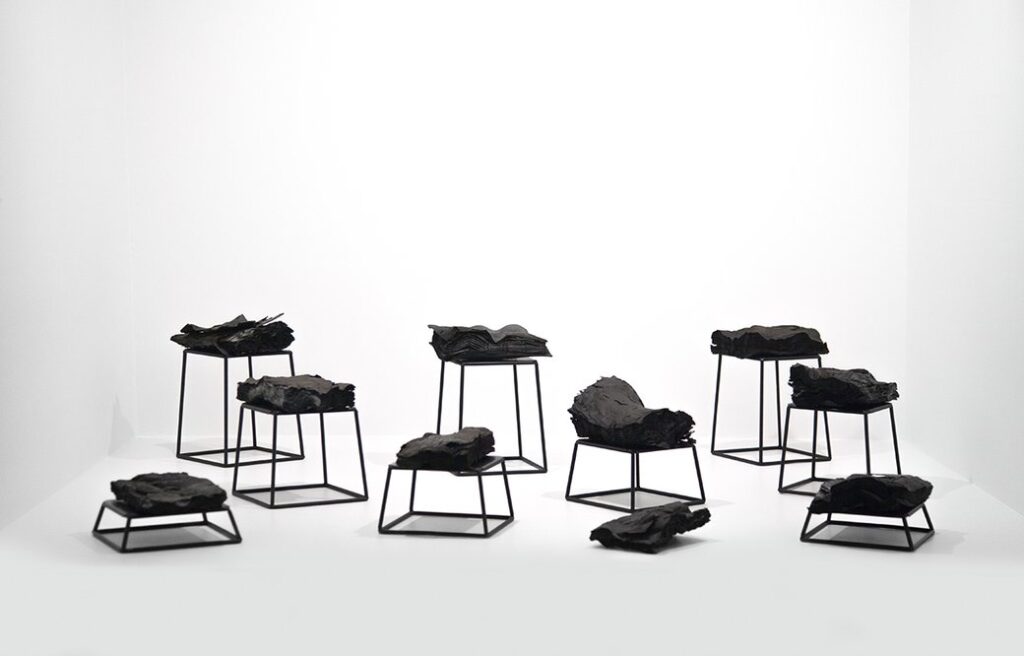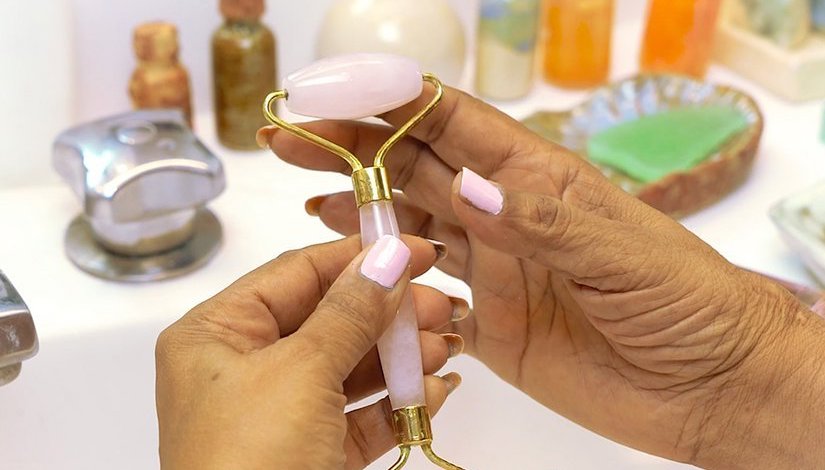“Do you have any answers for me?” asks LaToya Ruby Frazier’s mother in “Detox (Braddock U.P.M.C.),” the 2011 video piece the artist contributed to “Contact Traces” (through June 6), a show by California College of the Arts curatorial practice graduate students.
She’s far from the only one with the question. We’re coming up on the milestone of 60 percent of San Franciscans over 16 being fully COVID-vaccinated. But pressing issues lie strewn about us, half-discarded in the sprint to brunch again.
Questions like: What about the rest of the world? President Biden has indicated his support for waiving COVID patent restrictions, but the US sits on a large stockpile of the shots that could be sent to our neighboring countries—or better yet India, where the coronavirus death rates are as high as we’ve seen anywhere, at any time. You can’t beat a global pandemic with one-country solutions. Haven’t we learned anything from the last year and change?
Even if you find a way to look past global inequity and the possible development of new virus strains, it remains to be seen how workers from many industries will bounce back after their devastation by the pandemic. And what of the isolation-caused skyrocketing rates of local overdose deaths?
And on, and on. It’s a dizzying array of concerns whose overwhelming variety appears to be echoed in “Contact Traces,” which revolves around the concept of “care” as a potential avenue out of this mess.
Even before entering the space, visitors are greeted by an artist’s best attempt at caring for their spectators; Derya Akay’s installation of free fruit, flowers, coffee, intended to be taken by the exhibit’s attendees. Akay contributed to the show on an even deeper level when they suggested that curators donate exhibition budget to Sogorea Te’ Land Trust and Planting Justice, two Bay Area groups that seek to radically re-distribute aid to the Indigenous residents of the Bay and its previously incarcerated population.
“[Akay] came to this project thinking about, whose land are we on?” exhibition co-curator Shaelyn Hanes told 48 Hills. “Who has historically cared for this land and the communities that inhabit it?” Hanes says she and her co-curators followed Akay’s lead, recognizing the importance of fleshing out their commitment to mutual aid beyond exhibition statements.

Once inside the show, viewers will grapple with Frazier’s “Detox (Braddock U.P.M.C.)” video, from a series focusing on the phenomenal artist’s hometown of Braddock, Pennsylvania. Her largely Black community has fallen into disrepair after the closure of the steel mill that once employed workers, and “Detox” examines the public health fall-out from the community’s airborne exposure to the mill’s heavy metals. In it, Frazier and her mother take ionic foot baths.
We watch a health professional examine the reddish, brownish murk their bodies purge. The scene is cut together with interviews with Frazier’s mom about her frustration over chronic health issues and institutional neglect—the urgency of her queries apparent.
Heavy from that clip, the exhibition moves to another encapsulation of motherly health; Lenka Clayton’s catalogue of “63 Objects Taken from My Son’s Mouth” (2013/2021). The neatly collected coins, plant matter, cigarette butts, and bottle caps signal the artist’s determination not to work around her duties as a mother in her career, but to integrate the two identities.
A certain degree of humor is also used to illustrate a weighty subject in Ilana Harris-Babou’s 2020 video piece “Decision Fatigue,” which pokes holes in the top-heavy wellness movement which you can hardly help investing time in when you scroll Tik Tok or Instagram. An actress carefully concocts a facemask of Cheeto paste, her actions questioning the applicability of the commodification of care.

The show’s vision extends even to the threat of environmental meltdown. It’s hard to know what solutions could be proposed from “Underground Library,” Jenny Kendler’s “bio-charred” collection of old books about climate change, besides regime change. (The books were “burned slowly in low oxygen to sequester carbon.”) But answers aren’t what “Contact Traces” looks to provide.
“This entire exhibition is really in reponse to how our notions of care have changed over the past year,” says Hanes. “2020 really highlighted the importance of doing what we can for one another, and I would say that’s really the root of where all of these ideas that we’re addressing come from.”
In the face of that turbulence, the show’s team, which includes co-curators Leandra Burnett, Katherine Jemima Hamilton, Youyou Ma, and Emily Markert, have provide entry points into a key dialogue about safety and community in our inequitable pandemic-world.
“Our hope for people when they leave the exhibition would be that they leave thinking about what a society that centers care, caring for one another, caring for the environment,” Hanes says. “What that world could look like and maybe ways that we can implement that in our daily lives post-pandemic and in the future.”
“Contact Traces” runs through June 6th at the CCA Wattis Institute for Contemporary Arts. A Zoom panel on “Care Practices” featuring Jia Yi Gu, Rebekah Taussig, Victoria Papa, Levi Prombaum, and Laura Dickstein Thompson will take place on Thu/13, 5-6pm, free. More information on the exhibition here.


